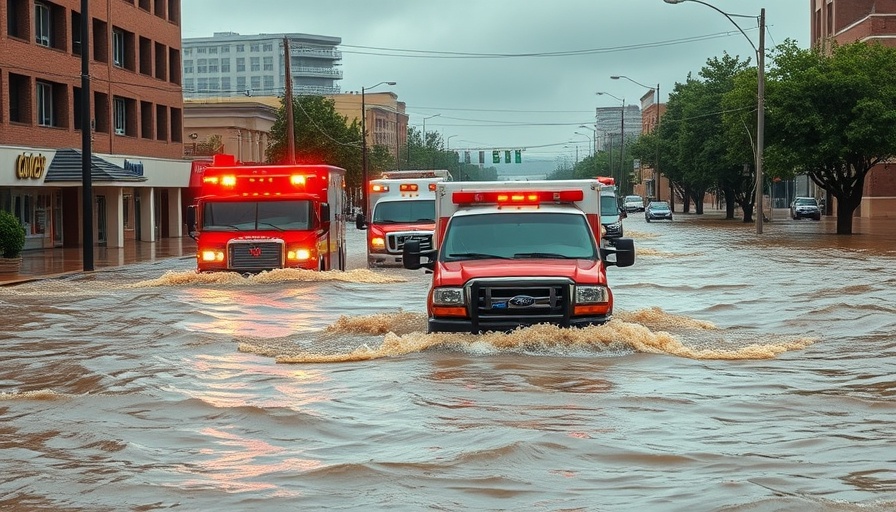
The Backdrop: Deadly Texas Floods
As the Fourth of July approached, the picturesque Hill Country in Texas faced a dire situation when sudden and severe flooding turned deadly, claiming 24 lives and leaving many residents missing. This tragic event coincided with Texas Senator Ted Cruz's family trip to Greece, raising questions and concerns regarding the timing of his return amid a crisis that required immediate leadership and attention from state officials.
Cruz's Response Amidst Controversy
In the wake of the flooding, Cruz communicated with top officials, aiming to coordinate federal resources to assist with the search-and-rescue efforts back home. His office has defended his actions, emphasizing that he engaged with emergency management personnel from overseas, but doubts lingered among Texans about his commitment during a critical crisis.
Comparisons to Previous Incidents
This isn’t the first time Cruz has faced backlash for his travel decisions during emergencies. Many reminiscently recalled the public outcry he faced during the winter storm in February 2021, when Cruz traveled to Cancún, Mexico, as millions in Texas faced power outages and water shortages. Critics have drawn parallels between these two events, questioning his judgment and priorities during crises.
Political Repercussions
The incident has reignited discussions about Texas politics and crisis management. It raises important questions about the responsibilities of elected officials during emergencies and their ability to provide effective leadership. Fellow Texas politicians, such as Sen. John Cornyn and Rep. Chip Roy, swiftly engaged in recovery efforts on the ground, contrasting Cruz's overseas presence.
Recent Texas News and Public Safety
The aftermath of the flooding reaches beyond Cruz's travel. It resonates deeply with the issues facing Texas today, from emergency response to the ongoing needs for effective disaster preparedness. This incident underscores the importance of having reliable systems in place to respond to natural disasters in Texas, especially as climate change continues to pose risks to communities across the state.
Community Response and Resilience
Local residents have demonstrated remarkable resilience during this crisis. Many have come together to support each other, volunteering their time and resources to assist those affected by the floods. This spirit of community highlights the strength of Texan values, showing that even in tragedy, people unite to help one another.
Future Considerations for Texas
As we continue to process the events of the flooding, it’s essential to evaluate Texas' preparedness and response strategies. The need for investing in infrastructure and effective emergency services is mandatory, along with reviewing policies that dictate officials' responsibilities during such crises.
Looking ahead, the upcoming elections in 2025 will bring the potential for significant changes in how public officials are held accountable during disasters. Citizens must remain engaged, as the stakes are high in terms of public safety, resource allocation, and effective governance.
Conclusion: The Call for Accountability
In light of the recent flooding tragedy, the Texas public deserves accountable and present leaders, especially in times of crisis. The responses of those elected must ensure public trust and promote a responsive government. As communities continue to recover, it's vital for Texans to speak out, hold their leaders accountable, and participate in shaping future policies that impact their safety and livelihoods.
 Add Element
Add Element  Add Row
Add Row 



 Add Row
Add Row  Add
Add 


Write A Comment